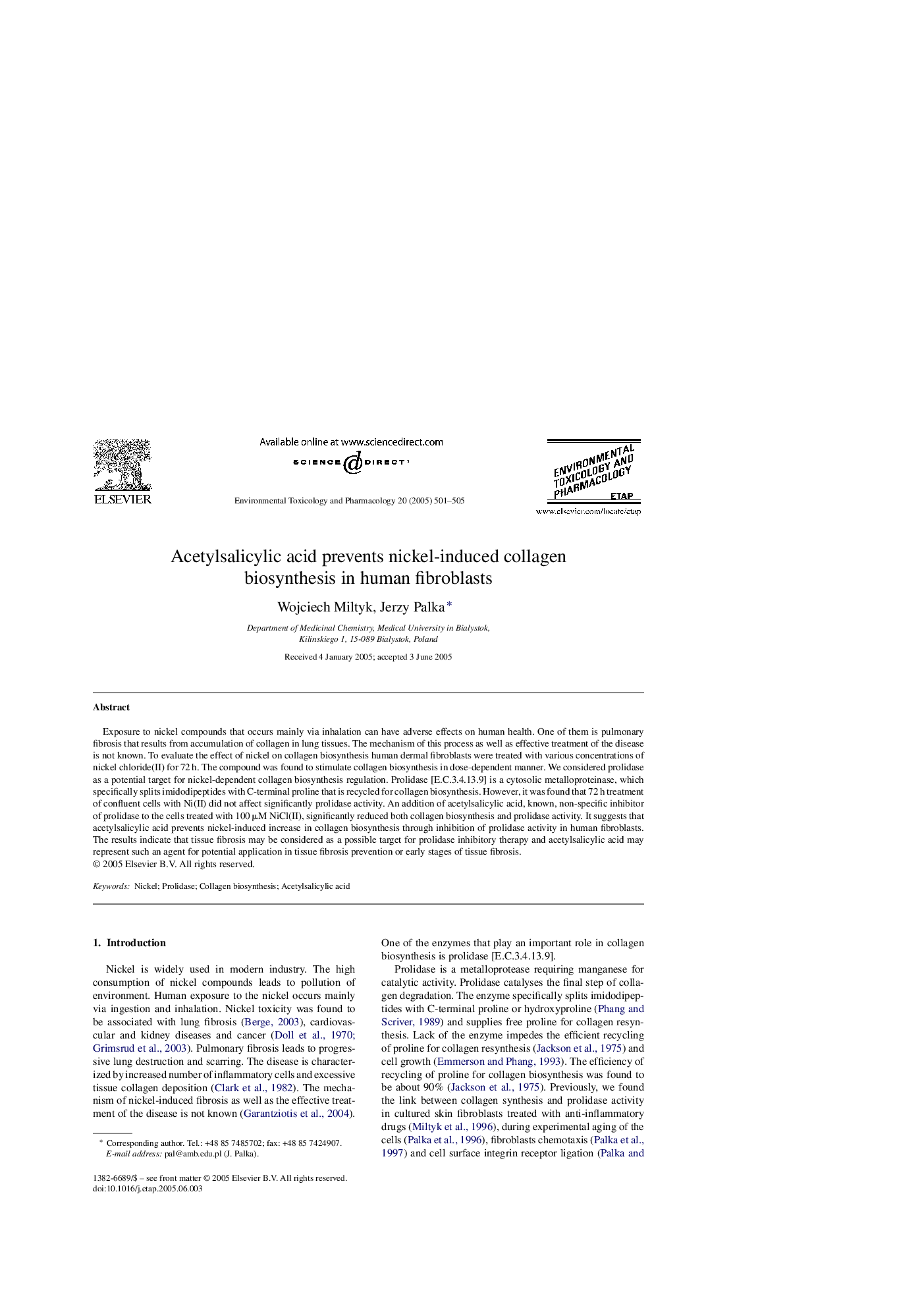| Article ID | Journal | Published Year | Pages | File Type |
|---|---|---|---|---|
| 9030044 | Environmental Toxicology and Pharmacology | 2005 | 5 Pages |
Abstract
Exposure to nickel compounds that occurs mainly via inhalation can have adverse effects on human health. One of them is pulmonary fibrosis that results from accumulation of collagen in lung tissues. The mechanism of this process as well as effective treatment of the disease is not known. To evaluate the effect of nickel on collagen biosynthesis human dermal fibroblasts were treated with various concentrations of nickel chloride(II) for 72 h. The compound was found to stimulate collagen biosynthesis in dose-dependent manner. We considered prolidase as a potential target for nickel-dependent collagen biosynthesis regulation. Prolidase [E.C.3.4.13.9] is a cytosolic metalloproteinase, which specifically splits imidodipeptides with C-terminal proline that is recycled for collagen biosynthesis. However, it was found that 72 h treatment of confluent cells with Ni(II) did not affect significantly prolidase activity. An addition of acetylsalicylic acid, known, non-specific inhibitor of prolidase to the cells treated with 100 μM NiCl(II), significantly reduced both collagen biosynthesis and prolidase activity. It suggests that acetylsalicylic acid prevents nickel-induced increase in collagen biosynthesis through inhibition of prolidase activity in human fibroblasts. The results indicate that tissue fibrosis may be considered as a possible target for prolidase inhibitory therapy and acetylsalicylic acid may represent such an agent for potential application in tissue fibrosis prevention or early stages of tissue fibrosis.
Related Topics
Life Sciences
Environmental Science
Health, Toxicology and Mutagenesis
Authors
Wojciech Miltyk, Jerzy Palka,
